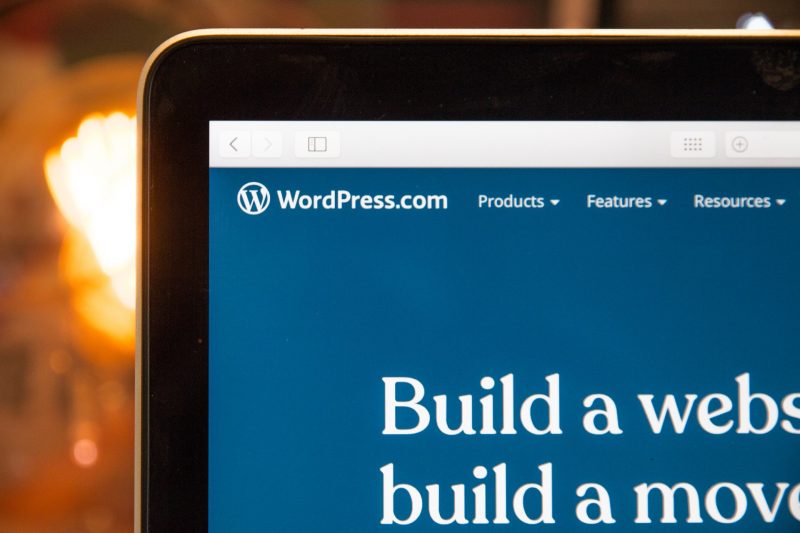So you’ve reached the point that it’s time to build or revamp your website. Designing the most valuable website can come with a few challenges and overwhelming moments. We’re here to help limit the stress starting by helping you choose the best website builder.
When it comes to creating your website, you have many options. From Wix to Squarespace, GoDaddy Builder to Weebly, Shopify to Magento, and more! Each software, hosting site, and website builder come with a list of pros and cons, so you must consider what is most important to you when creating and managing your website.
Our top pick is WordPress because it’s flexible, user-friendly, mobile responsive, secure, affordable, and highly customizable. Yes, other sites offer their own benefits, which we’ll get into down below. Still, if you’re looking for an easy-to-use CMS, a great product, excellent features, control, and freedom, then WordPress is the clear winner.
Here are the topics that we’ll discuss to bring you one step closer to your best website:
- Hosting service
- Website Builder
- Why WordPress
- WordPress VS. Wix
- WordPress VS. Squarespace
- WordPress VS. Shopify
- WordPress VS. Drupal
- WordPress VS. GoDaddy Builder
- WordPress VS. Weebly
- WordPress VS. Magento
- WordPress VS. Joomla
- WordPress VS. Webflow
- WordPress VS. CraftCMS
- AI and the Future of WordPress
- Best Website CMS Platform
In this article, you’ll learn why WordPress reigns supreme for creating some of the best websites around, as well as see a head-to-head comparison between WordPress and other website creation services. Before we get into that, let’s cover some industry terminology.

What is a website hosting service?
Web hosting can be compared to buying a piece of property to build your home. Instead of buying land to begin building your dream home, you’re buying a place (server) on the internet that will house and support you in building your dream website. Hosting your website precedes the website development process. You can’t build a house without land, just like you can’t build a website without a host!
So, for example, the Techhorizon It Solutions server will host your site, register your domain, and support software and plugins to enable the construction of your site right then and there. Many website builders will also offer hosting services. Once you have your online real estate, you can begin the process of building your website yourself or hire a professional web design agency!
What is a website builder?
In the simplest terms, a website builder is the tools and software required to build a website. Most builders are provided by your hosting company or web design team. The website builders (and content management systems) we’ll discuss further down include WordPress, Wix, Squarespace, Shopify, Drupal, GoDaddy Builder, Weebly, Magneto, Joomla, and Webflow. Some features you might want to consider before choosing the best website builder for you are:
- Blogging tools
- Photo Gallery
- E-commerce store capabilities
- Creation of contact and other forms
- Social media integration features
- Use of templates
- Ability to customize
- Ability to grow and expand the website and content
- Security and customer service access
- Plugins, add-ons, extensions, modules, etc
- Ease of use
- Tech experience required
- Price and overall cost
Different website builders focus on different features, and you may be swayed in one direction or another based on their features. Regardless of what you use to create your website, we recommend using one that is scalable and supports the growth and expansion of your business! It’s difficult to predict where your business will go. Having a website that supports these changes can help expedite expansion and minimize stress in the future.
Changing and adapting your business model can be challenging. If you can take one thing off your plate, such as redesigning your website, your future self with thank you! For this reason (and many others) we strongly recommend WordPress, but in this case, we recommend it because it’s so flexible and adaptable. Didn’t anticipate needing an online store? No problem, you can easily build one with WordPress using the WooCommerce plugin (free plugin, we might add)! Want to start writing a blog? Great, WordPress supports that too. In fact, there’s virtually nothing you can’t do and can’t customize with WordPress.

Is a website builder the same as a CMS?
CMS or content management system is software that allows you to create and modify digital content, such as the text and images on your website. You can think of a CMS as one of the most important tools for building a highly unique and custom website. Using a CMS can be extremely helpful if you are building a large website, anticipate future changes or growth, or want the flexibility to change and modify your content as you please. A website builder will get the job done, but it might not allow you the flexibility you need to build a one-of-a-kind website.
With a CMS, you can manage and modify your content as much as you want because they are very flexible. The main difference is that a CMS is a software that can be used on other servers, such as Techhorizon It Solutions, Bluehost, WordPress.com, or other hosting servers. A website builder provides software and tools that can only be applied to their specific platform. For example, Wix’s website-building tools can only be used with Wix. Essentially, a website builder is more limited in where and how you can use it and what it can do.
Compared to a CMS, a website builder is often easier to use because it doesn’t require coding experience, and the interface offers mostly drag-and-drop features. However, these easy-to-use features, although helpful for the novice web designer, require a lot of extra functionality to be loaded onto your site, ultimately slowing it down. A CMS, such as WordPress, allows you to customize your website more efficiently because it only loads features you use, which results in a more speedy and functional final project.
Some notable content management systems include WordPress, Drupal, Magento, Joomla, and Webflow (although Webflow is more of a hybrid, it’s a website builder with a built-in CMS). Website builders include Squarespace, Wix, Weebly, GoDaddy Builder, and Shopify. Although website builders are often easier to use initially and don’t require little to no security or maintenance work, they simply have fewer capabilities than a CMS. If you’re looking to create a small personal blog or a landing page for your website, then a website builder may suffice. However, if you are building your website to generate income, take your business to the next level, create an awesome online store, and want to give your users the best user experience, then opt for a CMS.

